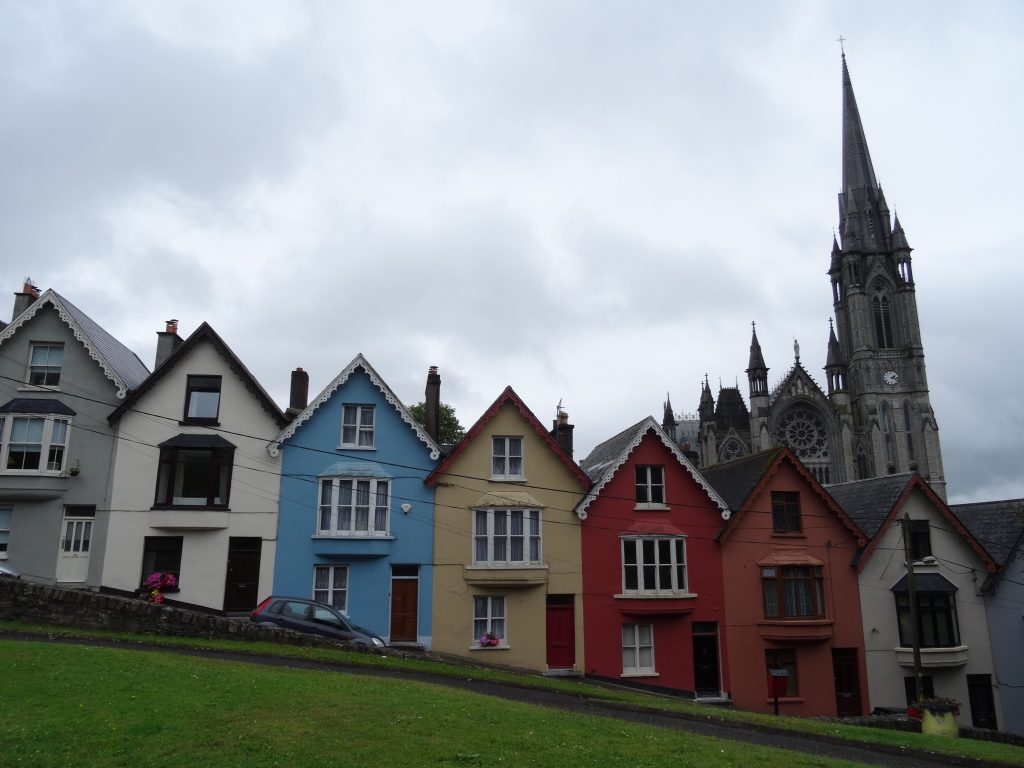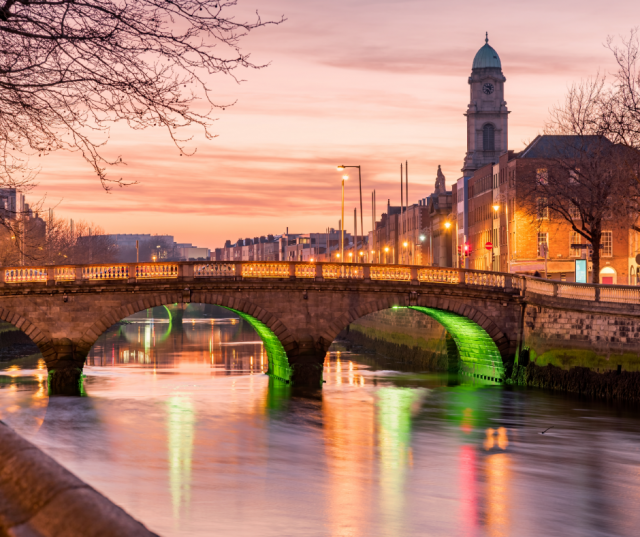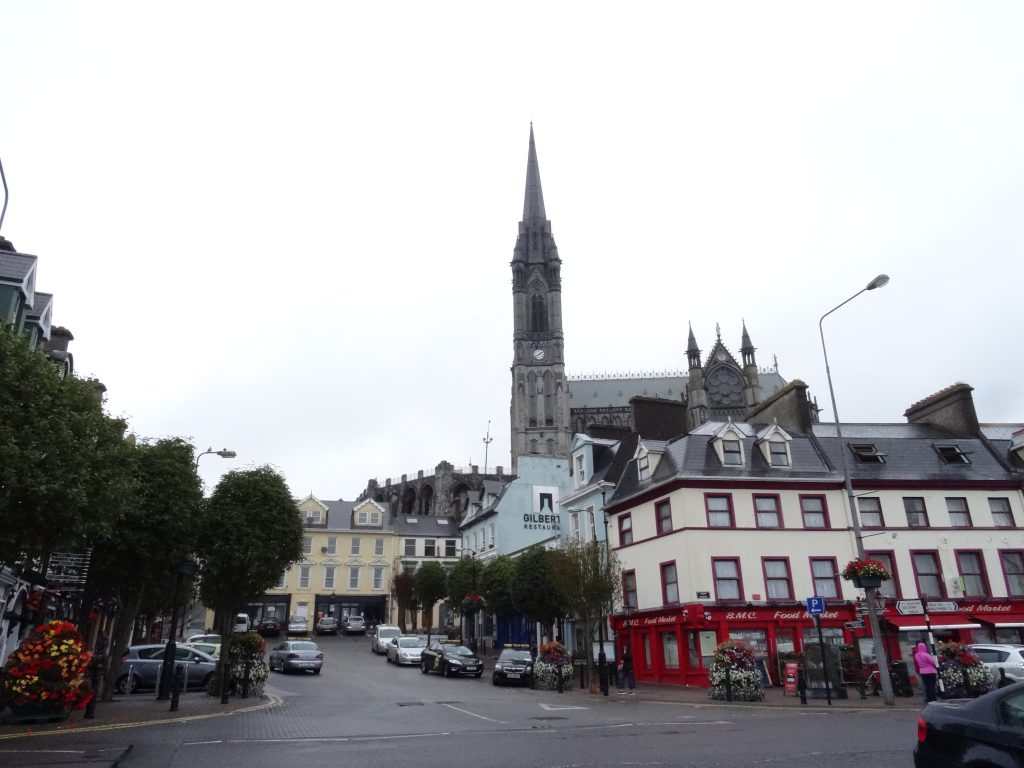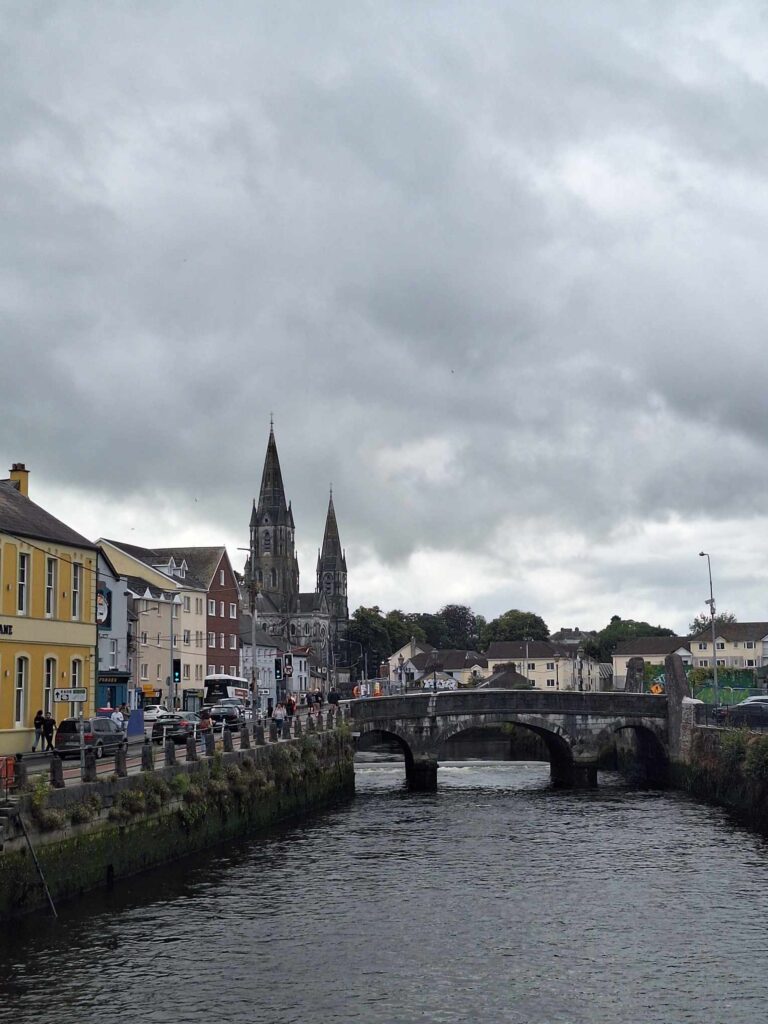Want to find out what living in Ireland is really like?! In this blog post, I’ll give you the lowdown on how to get a work visa for Ireland, how to rent or buy in Ireland, and how expensive it really is to live in Ireland.
I was raised in Cork City (FYI, I was born in San Francisco) and have lived in the Emerald Isle for around 20 years in total. But, recently I spent around 10 years living abroad and only moved home to Ireland a few years ago. So, I understand what it’s like living in Ireland as a newbie too. Honestly, it took me close to two years to settle back into life in Ireland after living in Queenstown, New Zealand. So, I’ve filled this blog with facts I wish I had known before returning to live in Ireland. And I hope it will help you out, too!
So, read on how you can make your dream of living in Ireland a reality!
Is Ireland a good place to live in?

Ireland is known for being one of the most naturally beautiful countries in the world, home to gems like Killarney National Park, the Ring of Kerry, and the Giant’s Causeway. And once you visit you’ll understand why this tiny nation is nicknamed the ’emerald green’. It really is so green!
But life in Ireland is more than just how gorgeous it is. The pace of life in Ireland is slower and the work/life balance in Ireland is better than most other countries. With the average work week in Ireland sitting at 39 hours and a great 20 days of annual leave, on average!
The crime rate in Ireland is low and overall it’s a very safe place to live. And once you’re a permanent resident you’re eligible for free public healthcare! Plus, maternity care is free, too, and so are GP visits for children up until they turn 8.
Not forgetting, the friendliness of the Irish people is a huge positive to moving to Ireland. The Irish are renowned for being a friendly bunch and will typically go out of their way to help you out or strike up a conversation. In saying that, if you’re missing home – you’ll likely bump into someone from your home country or state in Ireland as currently there are around 650,000 foreigners living in Ireland.
Related Read: Check out my guide to renting a car in Ireland – it may be handy for your first few weeks in Ireland before you buy your own car!
What salary do you need to live comfortably in Ireland?

I would say that you would need to earn a minimum salary of €50,000 EUR to live in Ireland comfortably. Ireland is an expensive country to move to!
A single person’s average expenses per month in Dublin (the country’s capital and biggest city) is just under €3,500 per month – that includes rent/ mortgage, food, bills, public transport/ car costs, etc. While in Cork, the average monthly expenses for a single person are around €2,500. Therefore, moving to Ireland with a decent chunk of savings is important!
Rent, as you can imagine, is the most expensive outgoing cost for most people, with the average rent in Dublin sitting at a whopping €2,400 per month. Renting in Cork, you’re looking at around €2,100 per month. Counties such as Leitrim, Donegal, Longford, and Roscommon are significantly cheaper.
What I wish I knew before going to Ireland?

For the average person, the process of moving to Ireland will be a challenge!
If you’re coming from the European Economic Area – these are all the countries in the European Union and Norway, Iceland, Liechtenstein, and Switzerland, you’re in luck. You don’t need a visa for Ireland or a work permit. You will, however, need to prove your financial stability after three months of living in Ireland.
If your parents or grandparents were born in Ireland, then you can apply for Irish citizenship directly. You can also apply for citizenship if you are married to an Irish person. You can find more information about applying for Irish citizenship here.
If the above doesn’t apply to you, you will need to get permission to work in Ireland from the Department of Business, Enterprise, and Innovation (DBEI). The type of work permit you apply for will depend on your job type and the duration of your stay.
You should also know that the property market in Ireland (both the rental and buying market) is pretty dire at present – the demand far outweighs the supply. So, if you’re looking to rent here be prepared for a challenge in finding a place to stay, particularly, in areas like Dublin, Cork and, Limerick.
The same goes for buying in Ireland – the number of homes available to buy in Ireland is at its lowest in 17 years. And so you will likely pay over the odds for your house. The process of buying a house in Ireland is MUCH SLOWER than in other countries, for example, with our house, it took over 6 months from going sale agreed to us getting the keys to the property!
How to get a visa for Ireland

There are 9 work permits you can apply for in Ireland. But the most popular work permits are the Critical Skills Employment Permit and the General Employment Permit.
- Critical Skills Employment Permit – For this work permit, you must first meet one of two qualifications. The first is that you do not work for a profession that is found on the ineligible jobs list. If your profession is on this list then you cannot apply for this visa. Another requirement is having a profession that is considered “highly skilled.” These professions include – Engineering; Natural & Social Science; Health, Information & Communication Technology among others. There are other stipulations with this visa, which can be found on the DBEI’s website!
- General Employment Permit – If your job and salary do not qualify you for the Critical Skills Employment visa, you can apply for the General Employment permit. Be warned; your job still cannot fall on the ineligible list of occupations.This visa can last for 2 years and then be renewed for an additional 3 years. After this, one can apply for long-term residency.
- Dependent/Partner/Spouse Employment Permits: Is a work visa and a family visa. It is issued to the dependent, partner, or spouse of a Critical Skills Employment permit holder. It allows holders to work in any profession, even ones that are on the ineligible list.
- Intra-Company Transfer Employment Permit: It is issued to individuals who transfer to the Irish branch of a company in which they are already employed. This is typically only available for senior management, key employees, and trainees.
You can read about all the other work permits available in Ireland here.
What is the quality of life like in Ireland?

Overall the quality of life in Ireland is good, as I said, the work/life balance in Ireland is decent with the average working week here sitting at just 39 hours. Plus, most employers offer 20 days of annual leave – which is higher than most other countries.
And the average salary in Ireland is €45,000 – this means that most people in Ireland can afford an annual vacation. Considering that flights to the rest of Europe and the U.K. are so cheap (thanks Ryanair) you will be spoiled for choice with what destinations you can explore easily and cheaply from Ireland!
All permanent residents in Ireland are eligible for free public healthcare, which is great, however, the health system in Ireland at present is experiencing severe overcrowding! There are not enough hospital beds to meet the demand, particularly in counties like Cork and Limerick.
According to a recent report, Ireland has the highest quality of life in Europe! So, most residents are ‘happy with their lot’ here in Ireland – despite the weather!
Pros of living in Ireland:
- It’s safe – Ireland has a relatively low crime rate. It is currently listed as having a 47.6 score on the crime index scale. Gun crime here is pretty much non-existent.
- Good work/life balance – Irish employers understand the need for a life outside of work. Ireland’s average work week is 39 hours and most employees get a minimum of 20 days annual leave per year.
- Great location – cheap flights to Europe, anyone? And you can also nab cheap flights to the U.S., specifically the East Coast.
- A large expat community – 15.5% of the total population of Ireland are citizens of other countries.
Cons of living in Ireland
- The weather – the biggest disadvantage to living in Ireland is the weather, the average number of rainy days here per year varies from 151 – 225, depending on where in the country you are.
- High cost of living – Ireland is an expensive place to live and I’d say that you’d need to be earning around €50,000 per annum to live here comfortably.
- Hard to find a place to live – Currently, the property market in Ireland (both the rental and buying market) is pretty dire – the demand far outweighs the supply. So, you’ll likely have a challenge on your hands trying to find a suitable place to live – be it to rent or to buy.
Is it easy to rent in Ireland?

As I said earlier, the rental market in Ireland is struggling to meet the demand.
Dublin can be especially expensive for rent; depending on the area, expect to pay up to €2,400 per month for a one-bedroom apartment! Here’s a detailed guide I wrote about renting in Ireland that I’m sure you’ll find very useful!
In Cork, on the other hand, the average rent in the city is now around €2,100. At the other end of the scale, counties like Leitrim, Donegal, Longford and Roscommon are significantly cheaper. I mean, you’re looking at just over €1,000 for a two-bedroom house in Donegal per month.
How to be successful in finding a place to rent in Ireland
1. Join the local housing groups on Facebook.
Just search in the Facebook search bar for relevant groups to join. I’ve found the best Facebook groups in the largest cities.
- In Cork – Cork – Rent, Let, House Hunting
- in Dublin – Rent in Dublin
- In Galway – Galway House Hunting for Sound People
- In Limerick – Rent in Limerick
- In Donegal – Donegal Property Rentals
2. Sign up with Irish letting agencies
Register your interest with Irish letting agencies like Sherry Fitzgerald that way you will be alerted when a new property is advertised and can be first in. Let.ie is another good rental property website
3. Good rental references are essential
Ensure you have good previous rental references (even if they are from overseas) and enough money for a deposit (typically one month’s rent) and your first month’s rent.
4. View properties in person
Try to arrive in Ireland before you plan on starting a long-term rental, and stay in short-term accommodation (I’ve listed a whole bunch at the end of this article) so that you can search for properties without rushing/panicking and get to know the areas. You may fall in love with a specific area that you never previously thought of.
Is it easy to buy in Ireland?


The process of buying a house in Ireland is lengthy – that’s because there’s limited houses on the market and the mortgage approval process here is notoriously long.
The average price of a house in Ireland currently sits at €337,500. But, of course where you decide to settle in Ireland may mean a lower or higher price. In Longford, for example, the average house price is €169,000 while in Dublin you’re looking at around €600,000.
There are no restrictions for foreigners purchasing property in Ireland. But remember that buying a property here does not guarantee you the right to reside in Ireland! However, residence by investment is possible in Ireland. That involves a minimum one million investment or €500,000 charitable donation.
It’s likely you’ll need a mortgage to buy a property in Ireland but if you’re not an Irish resident the process will be more difficult (it’s called a non-resident mortgage). Either way, you will need to be prepared with proof of your income and financial history. Please note, it takes significantly longer to be approved for a mortgage here than in most other countries, you’re looking at a couple of months.
If you’re a first-time buyer, a deposit of 10% is required as a minimum and you can borrow up to four times your income.
The best websites to search for a property to buy in Ireland are –
House showings in Ireland are scheduled, usually for a weekday evening and agents will rarely accommodate your schedule. My next advice is to hire a solicitor who has worked with those new to Ireland.
Where do most foreigners live in Ireland?

Most expats in Ireland tend to live in the larger cities like Dublin and Cork (the biggest and second biggest cities respectively) as that’s where most of the job opportunities are. However, like Irish locals many expats find themselves moving out of these expensive cities in search of a slower (and cheaper) way of life.
Counties like Mayo and Donegal are two of the cheapest places to live in Ireland, with rent averaging around €1,154 in Donegal per month and €1,338 in Mayo. And luckily, they’re two of the most beautiful spots in Ireland, too.
Below, I’ve detailed a little more about the most popular counties to live in Ireland for expats.
Cork


Cork is the second largest city in the Republic of Ireland. It is known for the stunning West Cork area (gorgeous beaches!) and its lively city center filled with bars, restaurants, shops, and, of course, the famous English Market.
There are a lot of jobs in the Pharmaceutical industry here thanks to large companies like Pfizer and Novartis located in Ringaskiddy in the county. Tech giant Apple’s European Headquarters is located on the Northside of the City. The best areas to rent in Cork include Douglas, Ballincollig, Carrigaline, and Cork City. The average rent in Cork City is €2,005 per month, and in Cork County is €1,538.
Dublin
Dublin is the capital and the largest city in Ireland. It is where most people aim to live when moving to Ireland but rents here are notoriously expensive – same for buying property. You will struggle to find an affordable rental property in the City Center with average rents in the CBD at just under €2,200 per month for an apartment.
Areas like Howth and Skerries are desirable and $$$ because they are pretty, safe seaside areas. Cheaper areas to rent in Dublin include Swords, North City Central, and CityWest. The average rent in Dublin stands at €2,300!
Galway
Galway is a quirky city and is a big student town (the National University of Ireland is located here). It’s one of my favorite cities in Ireland and it’s filled with artists and Irish music. Galway is also the gateway to the stunning Aran Islands.
The most desirable areas to rent in Galway include Galway City, Clifden (very beautiful area), Oranmore, Cong and Spiddal. Average rents in Galway City are €2,189.
Limerick
Limerick is the third largest city in Ireland, and I have to admit the city had a bit of a bad reputation and was nicknamed ‘stab city’, but that seems to be in its past, and now Limerick is a popular student city. I attended the University of Limerick and loved living in Limerick during my student years. Some of the most desirable areas to rent in Limerick include Castletroy (where the University of Limerick is located); Croom; Adare and Ennis Road.
The average monthly rent in Limerick is €2,107. In fact, the people of Limerick have one of the highest amounts of disposable income than anywhere else in Ireland.
Mayo
Mayo seems to be a particularly popular area with expats – particularly those of retirement age or close to retirement. It’s located on the Wild Atlantic Way and has gorgeously wild beaches as well as charming towns like Westport. The best areas to rent in Mayo include Westport, Ballina, and Claremorris. The average price of rent in Mayo is a pretty reasonable €1,338 per month!
Donegal
Located in the very North of the Republic of Ireland and bordering Northern Ireland – Donegal is one of the cheapest areas in Ireland to rent and to buy property. It’s home to some of the best beaches (and surfing) in Ireland and is becoming more and more popular with expats.
The best areas to live in Donegal include Ballyshannon, Bundoran, Donegal Town, and Letterkenny. The average listed rent is now €1,154 – a 20% jump from the previous year.
Thanks for Reading!

Have you ever considered living in Ireland? I’d love to hear about it in the comment section below!
You may also enjoy reading –
How to Spend One Day in Cork, Ireland
15 Best Free Things to do in Cork City
The Best Beaches You Must Visit in West Cork
Last Updated on January 11, 2025 by snaphappytravel


2 thoughts on “Living in Ireland – What To Expect (Written By A Local)”
Very informative. Thank you!
I’m glad you found it helpful, thanks for your comment.